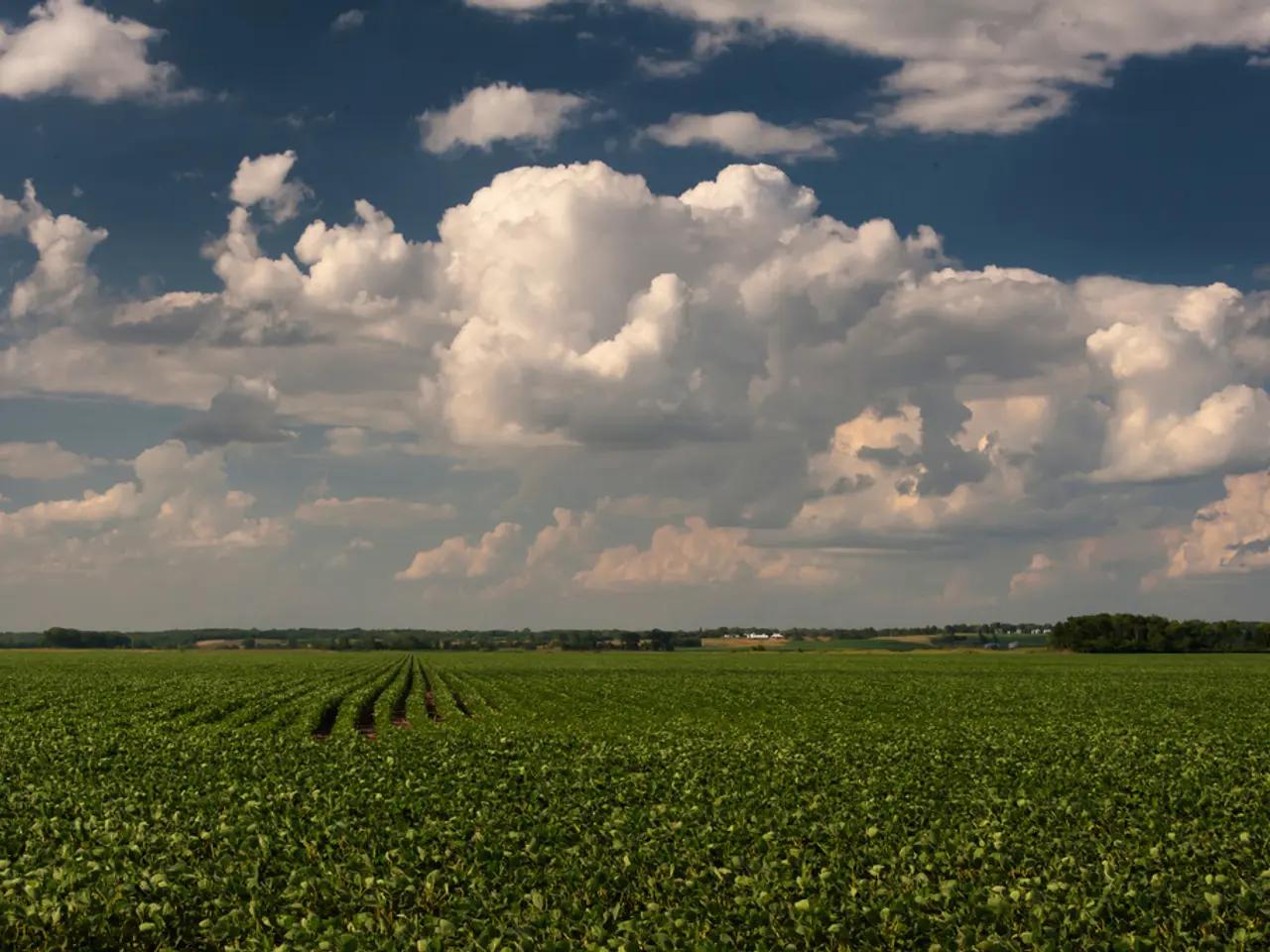The Imperative of an Eco-Friendly Rebuild for Ukraine
Ukraine's green transition is taking centre stage in its post-war reconstruction, with a focus on rebuilding energy infrastructure with sustainable, renewable sources and aligning closely with EU energy and climate standards.
The collapse of the hydroelectric dam in southern Ukraine, suspected to be a deliberate Russian attempt, has added to the country's energy problems and highlighted the need for a green transformation. The Kakhovka disaster has underscored the importance of a strong green aspect in rebuilding damaged infrastructure and modernizing the economy.
Ukraine currently generates about 17% of its energy from renewables, with solar and wind energy being crucial for providing reliable electricity and heat to vital public services amid ongoing conflict. The United Nations Development Programme (UNDP) Green Energy Recovery Programme, backed by Norway’s $200 million commitment, supports urgent energy infrastructure repair and the deployment of decentralized, renewable energy systems.
The European Investment Bank (EIB), UNDP, and German partners have forged new partnerships to expand renewable energy in public infrastructure, aiming at resilience, energy independence, and climate goals. They provide technical assistance and procurement support to municipalities.
Ukraine adopted its National Energy and Climate Plan as a blueprint for green reconstruction aligned with the EU's climate neutrality goals. The plan aims to directly support a hundred thousand small and medium-sized sustainable enterprises with up to 1.5 billion euros and provide financial assistance to over ten thousand small farms to accelerate the transition to sustainable agriculture in Ukraine.
The EU is a primary supporter of Ukraine’s green reconstruction, pledging up to €50 billion through the Ukraine Facility (2024–2027) and recently announcing €265 million specifically for stabilizing the grid, rebuilding renewable energy capacity, and improving energy efficiency. Collaborative agreements focus on renewable gases (biomethane, hydrogen) to create new revenue streams and strategic energy resilience.
Ukraine's green transformation is being seen as a geopolitical choice that would ensure greater alignment with the EU and put a definitive end to the dependence on Russian fossil fuels. The country assumed its first international climate obligations by signing the Kyoto Protocol in 2004 and became a full member of the Energy Community Treaty in 2011.
Ukraine is home to 35% of Europe's biodiversity and possesses one out of three species under protection in Europe, which exist only in Ukraine's steppes. However, the environmental cost of the war has been huge, with over 5 million acres of forests destroyed in less than six months. A map of environmental damage created by Greenpeace in collaboration with the Ukrainian NGO Ecoaction provides a general assessment of the scale of damage war is causing to the local environment.
The EU's Economic and Investment Plan for post-Covid recovery aims to mobilize 2.3 billion euros for the Eastern Partnership, including Ukraine, to stimulate jobs and growth, support connectivity, and promote the green and digital transition. Renewable energy sources, particularly wind and solar energy, are being proposed as cost-effective and sustainable options to prepare Ukraine's power grid for a future of decentralized production and distribution of electric power.
Russian attacks on civilian infrastructure have deprived millions of Ukrainians of access to vital services like electricity, water, and heat ahead of the cold winter months, resulting in the death of at least 77 civilians and injury of 272 as of December 2022. The damages to the Ukrainian energy sector were at least $9 billion, including $1.4 billion in utility infrastructure damage. Small to medium-sized farms, the main source of employment in the Ukrainian agricultural sector, could face challenges in accessing international funds for green policies compared to large, industrial agricultural companies.
Despite these challenges, Ukraine's green transition is positioning itself as a cornerstone for Ukraine's economic revitalization and long-term energy security amidst and beyond the conflict. The EU’s support is both financial and regulatory, helping Ukraine rebuild a more resilient, efficient, and sustainable energy system integrated with Europe’s energy market.
- The science behind sustainable, renewable energy sources is vital for Ukraine's green transition, especially in rebuilding its energy infrastructure.
- The climate-change consequences of Russian attacks on hydroelectric dams, like the one in Kakhovka, emphasize the importance of environmental-science education.
- Financial institutions, such as the European Investment Bank (EIB), are investing in renewable energy projects to modernize Ukraine's economy.
- Cooking with energy-efficient appliances and sustainable food sources is a part of the lifestyle change advocated for in Ukraine's move towards sustainable living.
- Food-and-drink enterprises that adopt environmentally friendly practices could attract investors in personal-finance, wealth-management, and real-estate sectors.
- Data-and-cloud-computing solutions can assist in weather-forecasting and weather-forecasting accuracy, aiding Ukraine's green energy systems.
- With an emphasis on sustainable living, healthy-cooking methods that minimize waste and emissions can support Ukrainian households during budget-travel.
- Adventure-travel companies could offer eco-friendly excursions showcasing Ukraine's biodiverse home-and-garden landscapes, helping revitalize the tourism industry.
- Investing in sports stadiums with energy-efficient technology aligns with Ukraine's green transition, as sports organizations contribute to a healthier environment.
- Sports-betting platforms can foster responsible gaming practices within their apps, positively contributing to Ukraine's weather-forecasting infrastructure.
- A green focus in Ukraine's energy sector can help stabilize weather patterns and reduce the impact of extreme weather events on the country's agriculture.
- Collaboration between science, technology, and Ukraine's green transition presents opportunities for creating industries based on sustainable, responsible practices while enhancing the nation's competitiveness in the global market.




